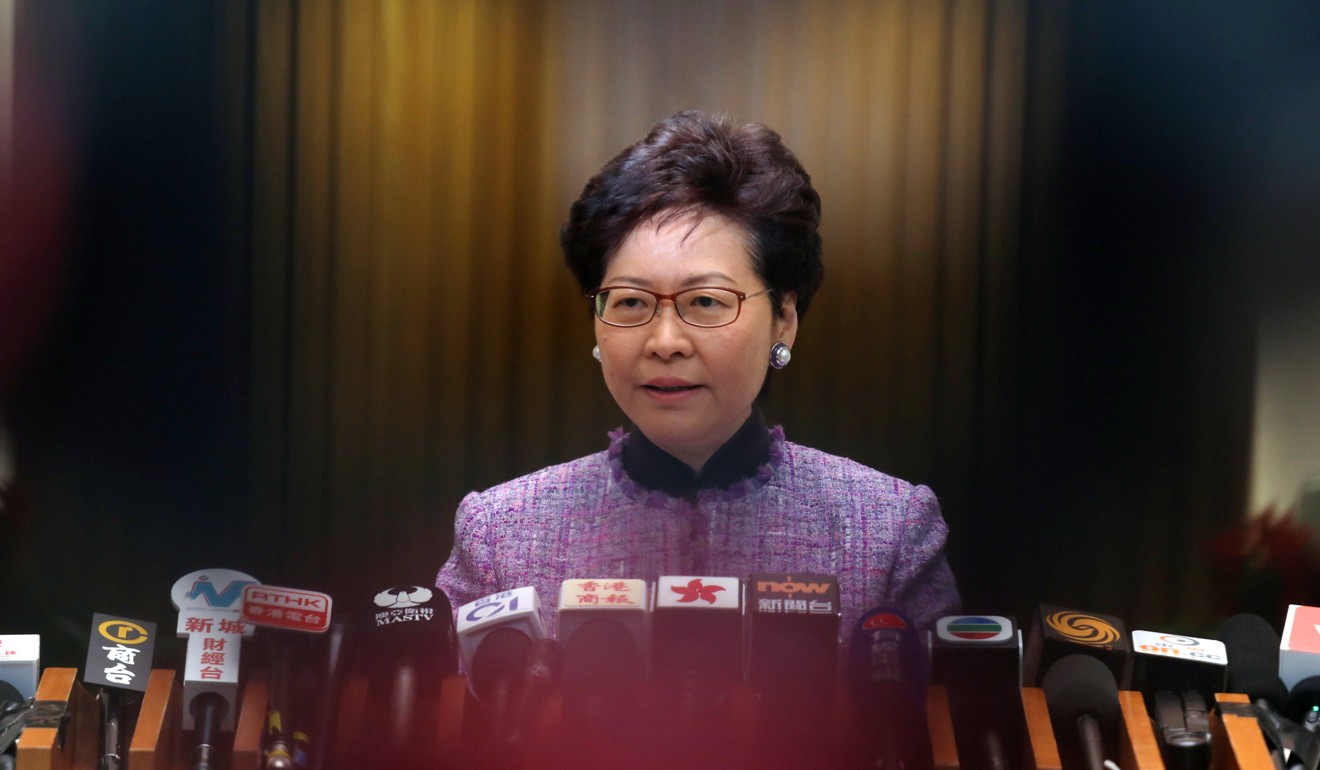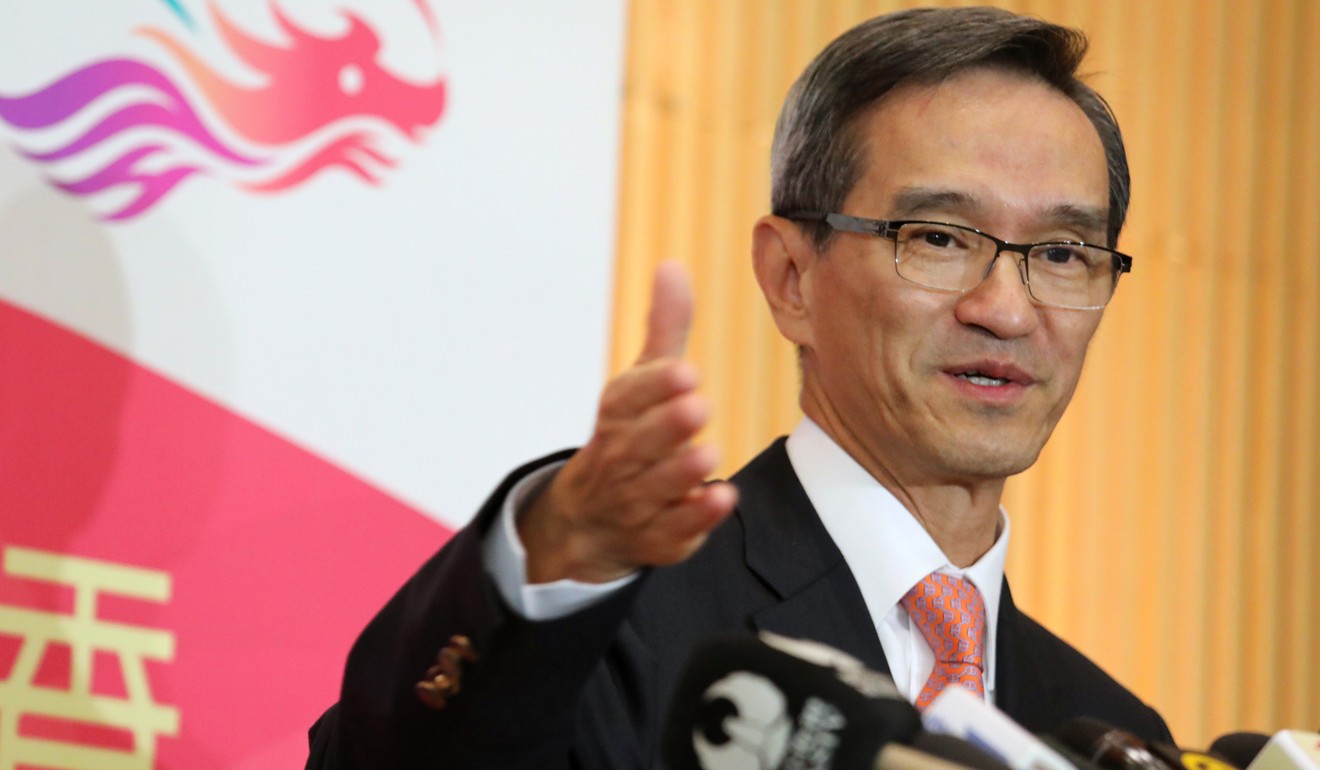
Take the reins on Hong Kong land supply, city leader Carrie Lam urged
- Task force members say current structure is not transparent and does not cover all the city’s policy needs

Official advisers have urged Hong Kong’s leader to head up a new committee for boosting land supply, saying the current system is not transparent and does not cover all the city’s policy needs.
It came as Chief Executive Carrie Lam Cheng Yuet-ngor was expected to face questions from lawmakers on Thursday about controversial issues thrown up by a final report submitted by the government-appointed Task Force on Land Supply last week.
So far Lam has only said she would study the task force’s findings, but raised eyebrows on Tuesday when she added that it would be “irresponsible” for her to fully accept its suggestions.
In its report the task force recommended, among other things, that the “most senior echelon of the government” should be in charge of a new steering committee reviewing an overall land supply strategy.
“In our discussion, some members did mention having the chief executive chair this particular committee, but of course that was going to be a little too specific. We didn’t want to corner the chief executive into steering the land supply steering committee in the future,” task force chairman Stanley Wong Yuen-fai said.

At least seven task force members the Post spoke to agreed that Lam herself should take the reins.
But there is already a government committee doing a similar job. In 2010, the government set up a Steering Committee on Land Supply, chaired by the financial secretary, to coordinate work between bureaus and departments on speeding up the supply of land for housing. It was reorganised in 2013 to oversee land supply for various uses beyond housing.
But how effectively the committee functioned during the last administration was open to question, because then finance chief John Tsang Chun-wah was known to not get along with his boss Leung Chun-ying, who was keen to take charge of housing and land issues.

One government source admitted there was room for improvement.
“The [existing] steering committee ... doesn’t comprise officials from policy bureaus like the Food and Health Bureau and the Education Bureau,” the source said. “We may explore the possibility of broadening the membership of the committee in future.”
Government websites do not have information on how many times the committee has met, or provide any discussion papers, and the Development Bureau has not responded to inquiries about it.
Land supply in Hong Kong has been hit by constant delays, ranging from difficulties in land clearance to objections from lawmakers. The government estimated in 2016 that the city faced a shortfall of 1,200 hectares in the next three decades – an estimate the task force called “grossly conservative”.
A more regular and vigorous review of demand and supply, overseen by the most senior level of the government with input from different policy bureaus, would be necessary, the task force said in its report.
Wong said the creation of the committee was “even more important” than the eight preferred land supply options the task force put forward in its report, such as developing brownfield sites and reclamation.
“Once you have a mechanism and regime in place, we can make sure we will not have a repeat of the shortage situation that we have today,” Wong said, adding that he was open to the chief secretary taking charge of the committee, instead of the city leader.
Ho Hei-wah, one of the 22 non-official task force members, agreed the chief executive would ensure better coordination among various policy bureaus.
“The major shortcoming of the existing regime on land supply is that most policy bureaus usually indicate the amount of extra land they need based on the services they are planning only in the next few years, without a long-term perspective,” he said.
No members objected to the idea when it was proposed in a meeting in mid-December, Ho added.
While the new committee was likely to consist of government officials, some members suggested it could also include various field experts as non-official members, to be more transparent and increase public participation.
Another task force member, Ricky Yu Wai-yip, said such a committee was “long overdue”.
“The mayors of all cosmopolitan cities, be it London, New York, are the one in charge of any issues of long-term development. When land supply is an issue that affects generations to come, it’s only reasonable that the chief executive herself chairs the committee,” Yu said.